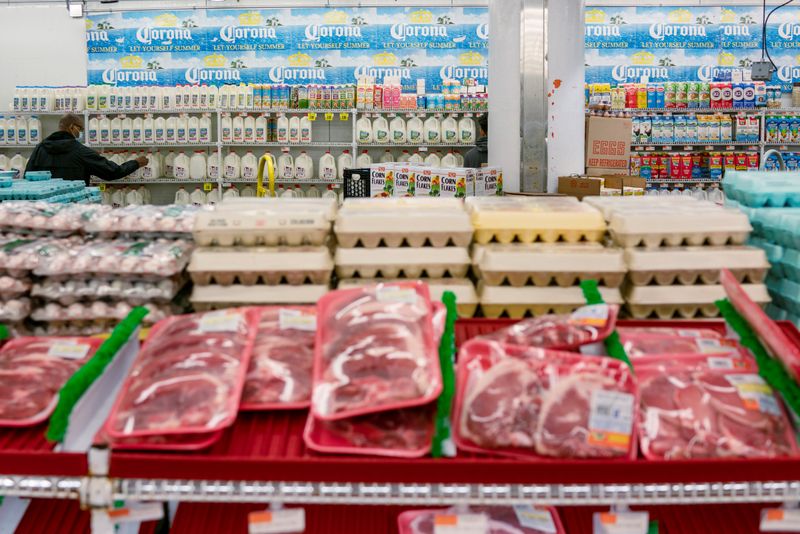CHICAGO (Reuters) – U.S. frozen pork inventories fell 25% from a year earlier at the end of June, the U.S. Agriculture Department said on Wednesday, after coronavirus outbreaks in meatpacking plants slowed production.
The data show supplies in cold-storage facilities remain lower though meat processing has largely recovered after plants temporarily closed in April and May due to the spread of the contagious respiratory virus.
As of June 30, 464.373 million pounds of pork, including ribs, loins and hams, were in cold-storage facilities, down from 467.927 million the previous month and 619.454 million a year earlier, the USDA said in a monthly report.
The 3.5-million-pound decline was the smallest for that month since 1970 and followed a record-large drop in May, said Rich Nelson, chief strategist for commodity broker Allendale. Typically supplies fall by 30 million pounds in June, he said.
U.S. pork production in June increased about 6% from a year earlier as plants recovered from the outbreaks and had large numbers of heavy hogs to slaughter, Nelson said.
At the same time, U.S. seaborne exports to China, the world’s top pork consumer, jumped 135% year over year in June, according Panjiva, the supply chain research unit of S&P Global Market Intelligence.
Smithfield Foods [SFII.UL] owner WH Group Ltd <0288.HK> led the increase in absolute terms with a 135% jump in exports, Panjiva said in a report. Shipments linked to JBS SA’s <JBSS3.SA> U.S. unit JBS USA [JBS.UL] rose 878%, and those linked to Tyson Foods Inc <TSN.N> surged 1,771%, according to the firm.
“Total exports fell as Chinese customers were prioritized,” Panjiva said.
Meat processors have come under fire for increasing exports to China after warning of domestic shortages in April.
Tyson told Democratic U.S. Senators Elizabeth Warren and Cory Booker in a recent letter that “exporting does not threaten the American meat supply” because shipments often include products like organ meat that U.S. consumers do not usually eat.
(Reporting by Tom Polansek; Editing by Cynthia Osterman and Richard Chang)


























